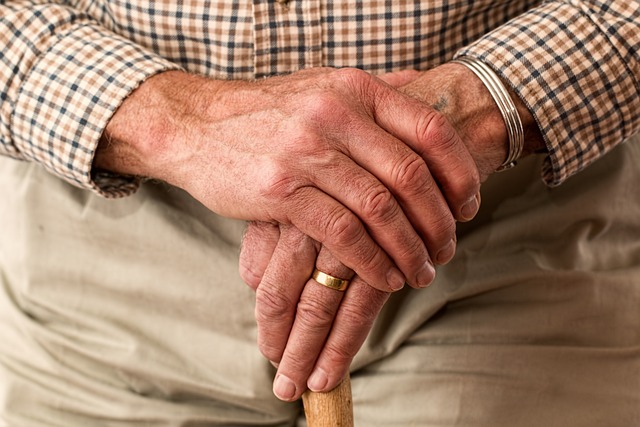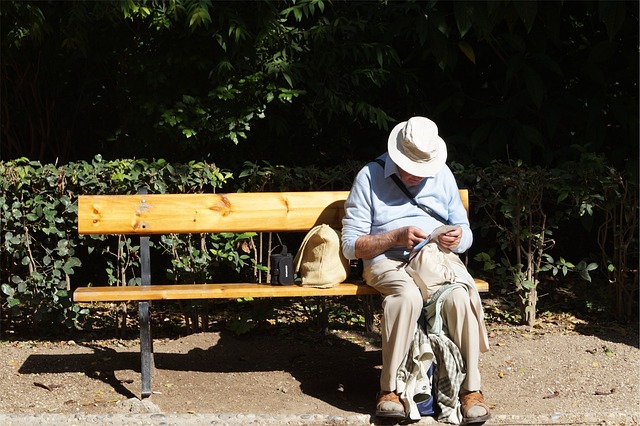
Elderly Companion Services play a pivotal role in enhancing the lives of seniors by providing regular, engaging interactions with trained volunteers or companions. These services are crucial for mitigating loneliness and isolation, which can negatively impact mental and emotional health, potentially leading to depression and cognitive decline. They support seniors in maintaining their hobbies and interests, fostering a sense of purpose and community connection. Beyond direct benefits to the elderly, these services offer vital respite for caregivers, enabling them to manage their responsibilities more effectively. These programs not only alleviate loneliness but also significantly improve the quality of life for seniors by supporting their health, longevity, independence, and dignity. Tailored to individual needs with an emphasis on empathy and active listening, these services contribute positively to overall health and happiness among the elderly, while also strengthening community social fabric by ensuring the inclusion and valuation of seniors. Elderly Companion Services are a critical lifeline for isolated elders and integrate technology to keep seniors connected with loved ones and engaged in social activities. The selection of these services is taken seriously, with providers undergoing specialized training, background checks, and continuous professional development to ensure they deliver compassionate and effective care, making them an indispensable component of holistic elder care solutions.
The golden years of life, often rich with experience and wisdom, can also be a time of increasing isolation for many elders. Recognizing the significance of social interaction in maintaining mental and emotional well-being, this article delves into the vital role of elderly companion services in enriching the lives of our senior citizens. We explore the multifaceted approach to addressing loneliness through these services, from the training and qualifications of providers to the integration of technology for enhanced connection. By examining case studies, funding resources, and strategies for effective interaction, we aim to shed light on the transformative power of companionship and how it can be a cornerstone of healthy aging. Join us as we navigate the landscape of elderly companion services, highlighting the best practices that ensure privacy, respect, and meaningful engagement for our elders.
- The Importance of Social Interaction for the Elderly
- Understanding Loneliness in Aging Populations
- Introduction to Elderly Companion Services
- How Companion Services Enhance Quality of Life for Seniors
- Training and Qualifications of Companion Service Providers
The Importance of Social Interaction for the Elderly

Engaging in social interactions is a cornerstone of mental and emotional well-being, particularly among the elderly. As individuals age, their social networks often shrink due to retirement, the loss of peers, or mobility challenges. This is where companion services for the elderly play a pivotal role. These services are designed to provide regular friendly visits from trained volunteers or companions who offer companionship and engagement, helping to mitigate feelings of loneliness and isolation that can exacerbate health risks and lead to depression and cognitive decline. The presence of a consistent companion can encourage seniors to participate in activities they enjoy, fostering a sense of purpose and connection to the community. Furthermore, these visits offer an opportunity for family members to have respite from their caregiving duties, ensuring that both the elderly individual and the caregiver receive the support they need. By promoting social interaction, elderly companion services not only enhance the quality of life for seniors but also contribute to their overall health and longevity, making them an invaluable resource in maintaining the independence and dignity of older adults.
Understanding Loneliness in Aging Populations

As the global population ages, the issue of loneliness among the elderly has become a significant concern for public health and social welfare systems. The elderly companion services have emerged as a beacon of hope for many seniors who find themselves isolated due to various factors such as the loss of loved ones, declining mobility, or living alone. These services are designed to provide companionship, which is more than just the presence of another person; it encompasses meaningful engagement and social interaction that can uplift an elder’s emotional well-being. Such services often involve regular visits from trained volunteers or professionals who offer not only conversation but also assistance with daily tasks, which can help maintain an elderly individual’s independence and quality of life. By understanding the nuances of loneliness in aging populations, these companion services are tailored to address the unique needs of each elder, fostering a sense of connection and belonging that is essential for their overall health and happiness. The role of empathy and active listening cannot be overstated; these are the cornerstones of meaningful companionship. Through personalized interactions, elderly companion services work towards alleviating the emotional strain associated with loneliness and enhancing the social fabric of communities by ensuring that seniors are included and valued.
Introduction to Elderly Companion Services

Elderly Companion Services represent a growing sector within the realm of eldercare, offering meaningful support to seniors who find themselves living alone. These services are designed to alleviate loneliness and isolation, common challenges faced by the elderly, particularly those who have lost companions due to the passing of time or the relocation of family members. By providing regular visits from compassionate individuals, these services ensure that elders receive the social interaction necessary for their mental and emotional well-being. The role of a companion can range from engaging in light conversation to assisting with daily tasks, thereby offering a sense of comfort and continuity in their lives. This personalized attention not only enhances the quality of life for the seniors but also promotes a sense of security and belonging, which is invaluable for maintaining their independence and dignity as they age.
Complementing in-person visits, Elderly Companion Services often incorporate technological solutions to foster connections. This includes assisting elders with using video calling platforms to stay in touch with loved ones, or even facilitating social groups where seniors can share experiences and build friendships within a community that understands their unique life stage. The adaptability of these services ensures that they cater to the diverse needs and preferences of elderly individuals, making it an essential resource for those advocating for age-friendly communities and holistic eldercare solutions.
How Companion Services Enhance Quality of Life for Seniors

Elderly companion services play a pivotal role in enriching the lives of seniors who may be experiencing loneliness or social isolation. These services are tailored to meet the individual needs and preferences of each senior, offering a personalized touch that can significantly improve their emotional well-being. Trained companions engage with seniors through various activities, from conversation and shared hobbies to assistance with daily tasks, thereby fostering a sense of connection and purpose. This interaction not only alleviates the feelings of solitude but also encourages cognitive stimulation, which is beneficial for maintaining mental acuity. Moreover, these services often facilitate social integration by accompanying seniors on outings or introducing them to community events, thus enhancing their overall quality of life. The presence of a companion can also provide peace of mind to both the senior and their loved ones, knowing that there is regular social engagement and a supportive network in place. This holistic approach to companionship ensures that seniors remain active participants in their own lives, with the added advantage of having someone to share experiences and emotions with on a consistent basis.
Training and Qualifications of Companion Service Providers

When selecting a provider for elderly companion services, it is imperative to consider the training and qualifications they possess to ensure the best care for seniors experiencing loneliness. These professionals undergo specialized training that equips them with the necessary skills to engage with elderly individuals effectively. This training often includes communication techniques tailored to older adults, understanding and managing common health issues that accompany aging, and emotional intelligence to foster meaningful connections. Additionally, providers are typically required to have a certain level of education, such as certifications or degrees in gerontology, social work, psychology, or related fields. They must also be thoroughly vetted, often including background checks and reference verifications to ensure the safety and well-being of the seniors they serve. Continuous professional development is also a cornerstone of maintaining high standards within the elderly companion services sector, ensuring that providers stay up-to-date with best practices and emerging trends in elder care. This commitment to ongoing education and adherence to industry regulations not only enhances the quality of companionship but also provides peace of mind for families looking for trustworthy and competent support for their loved ones.
Engaging with lonely elders through elderly companion services offers profound benefits, enhancing their social interaction and quality of life. As the article has detailed, social engagement is crucial for the elderly’s mental and physical well-being, combating the effects of loneliness that can lead to a myriad of health issues. The introduction to these services set the stage for understanding how they provide meaningful companionship, tailored to individual needs. Professionals in this field undergo rigorous training and hold necessary qualifications, ensuring safe and compassionate care. In conclusion, elderly companion services stand as a testament to the power of human connection and its ability to uplift lives, making them a vital resource for maintaining the health and happiness of our aging population.







